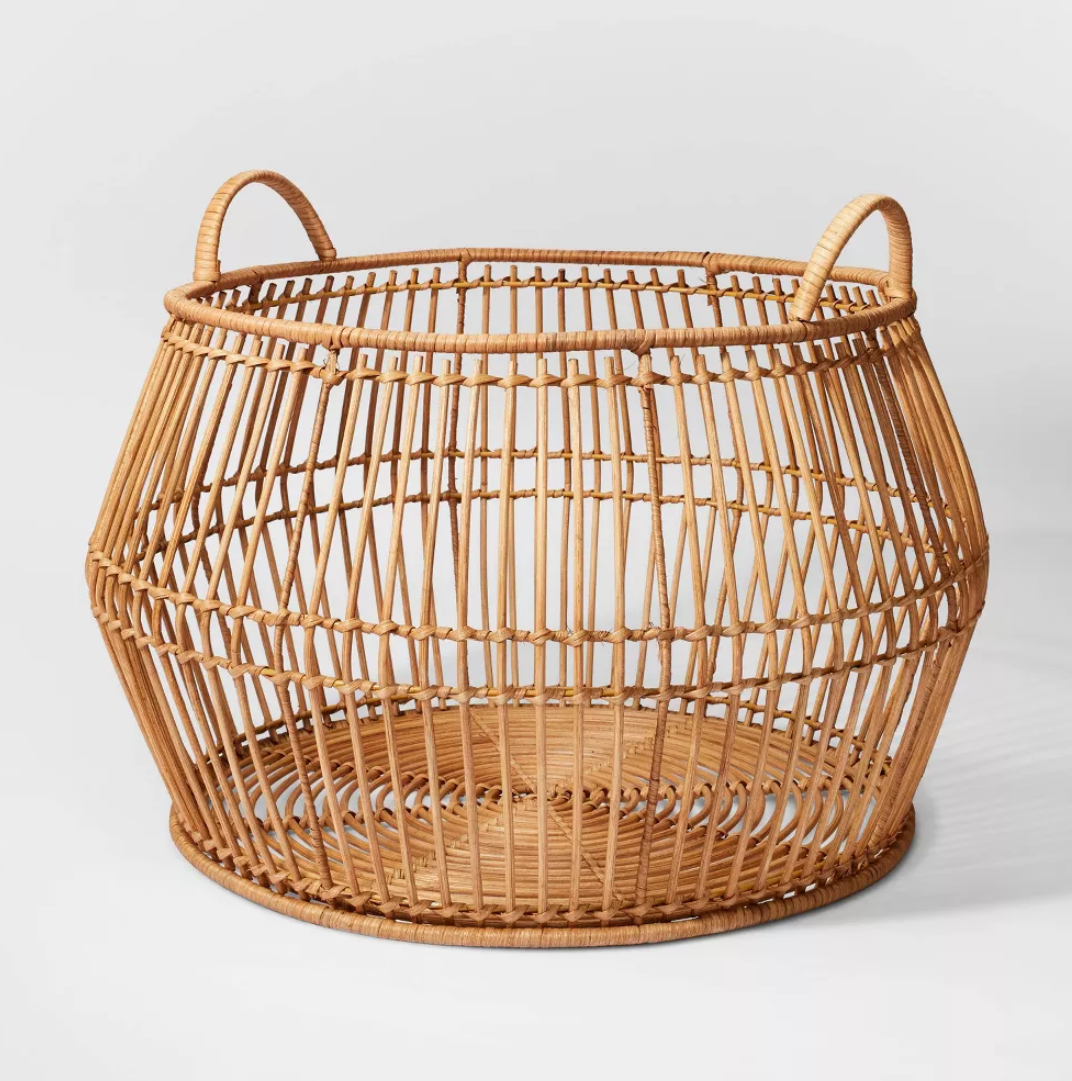How to Store Clothes — 5 Ways to Maximize Space and Keep Your Garments Neat and Tidy
Storing clothes correctly is the key to an organized space. Here are a few ways you can do just that, according to an expert

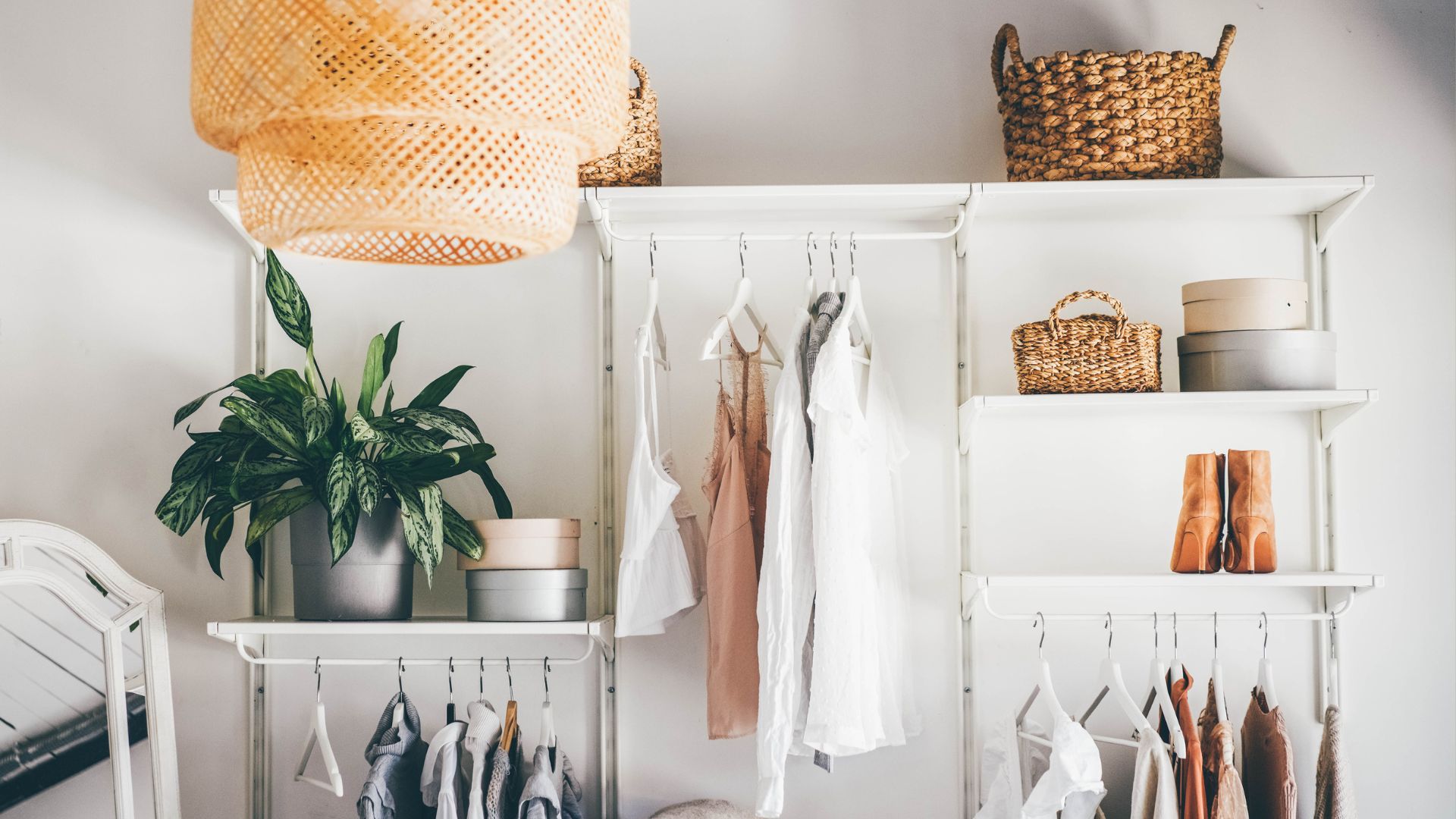
Knowing how to store clothes is key to a clean and tidy space. It can be quite challenging, however, to create storage in a bedroom with limited space. This is where a little creativity comes in, along with some space-saving methods for storing clothes in different ways.
Whether you're looking for ideas on how to store clothes without a dresser or the best way to keep your clothes in check, there are a few methods you can use.
We've spoken to a professional organizer to learn their go-to strategies for storing clothes.
1. Declutter First
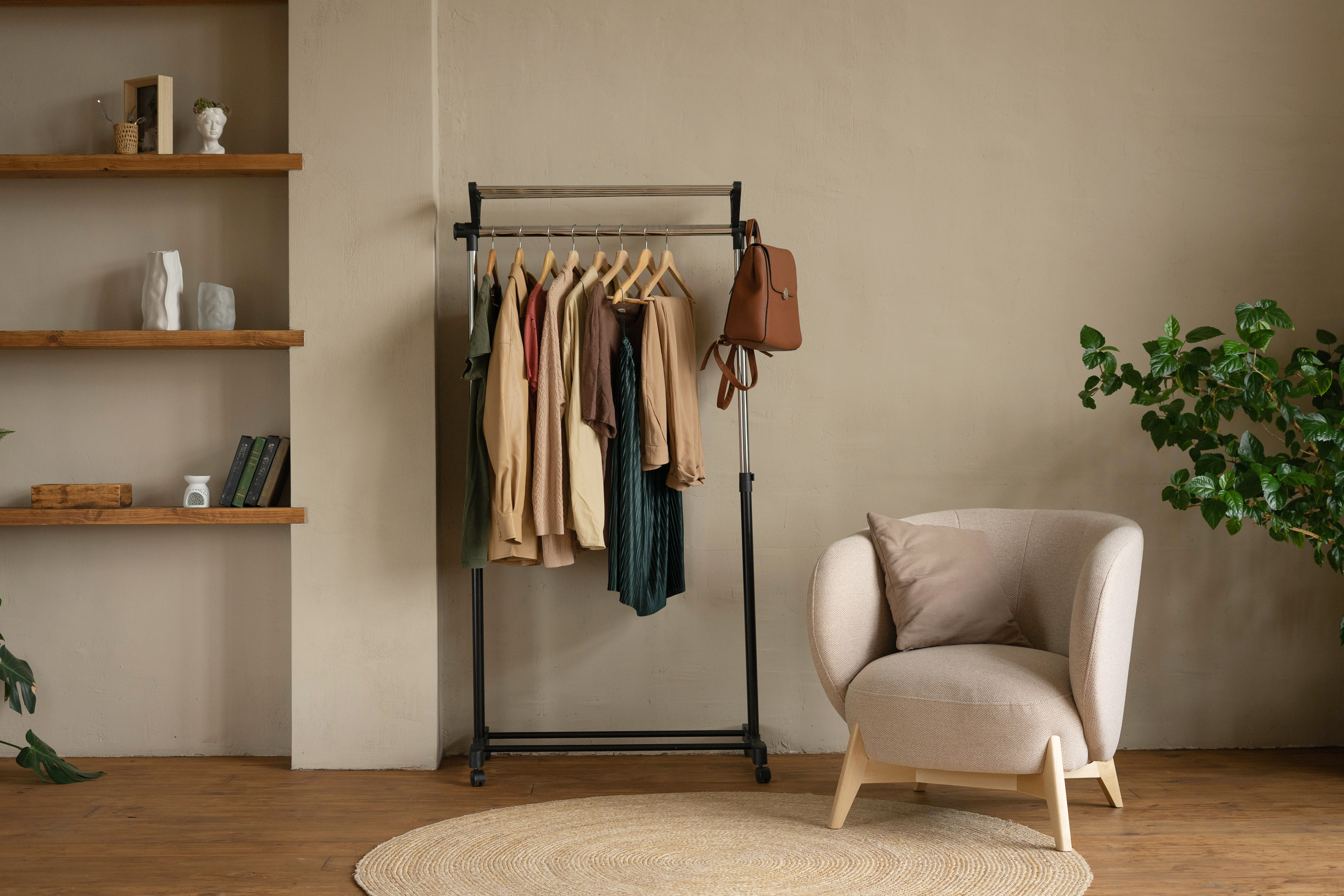
Learning how to declutter clothes is the first step to storing your clothes in an organized manner. Lisa Tselebidis, a professional organizer and KonMari-certified consultant, tells us: "Before taking on the task of re-organizing and properly storing your clothes, I highly suggest you edit your collection of items and declutter anything you no longer love, need or doesn’t fit."
As a first step, Lisa says you have to take out everything from your closet or dresser. This will allow you to go through your items and assess whether you want to keep them or if they’ve served their purpose, and you can let them go. "If the latter, put those clothes in bags or boxes to be donated or sold as soon as possible," explains Lisa. "Only those garments you truly love wearing should go back into your closet. Declutter first so you can cut down on the time and effort needed to organize your remaining items. Another plus is that decluttering creates space in your closet."
It's time to tackle those closet organization ideas and make the most out of your space. You can create a simple and smooth system by separating the clothing you want and need from the clothing you want to sell or donate. Baskets and bins are a great way of doing this.
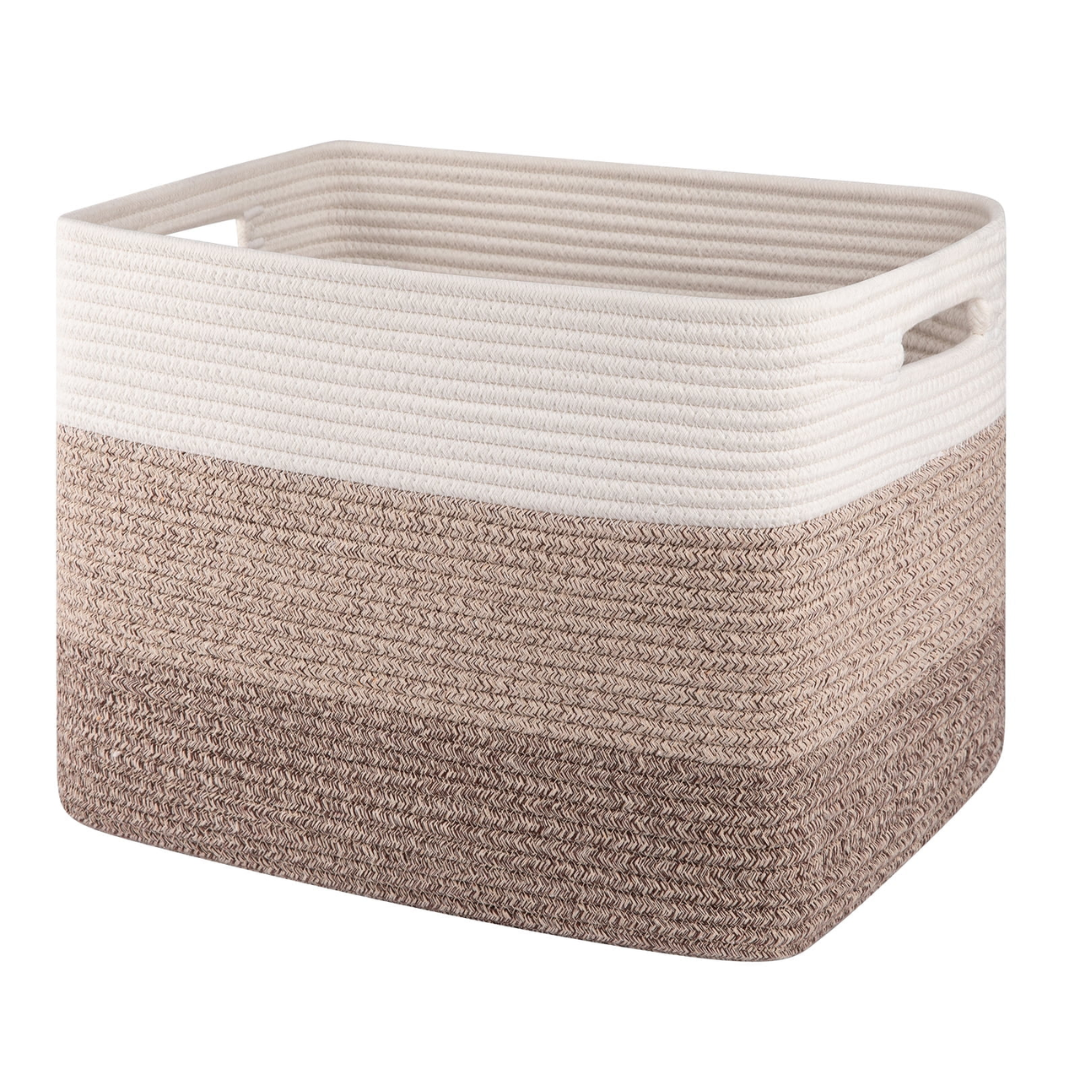
Price: $18.99
Was: $39.99
This elegant and simple cotton rope storage basket with handles is the perfect little modern feature for your home and its organization needs. This versatile storage hamper is perfect for the bedroom, laundry room, and even living room.
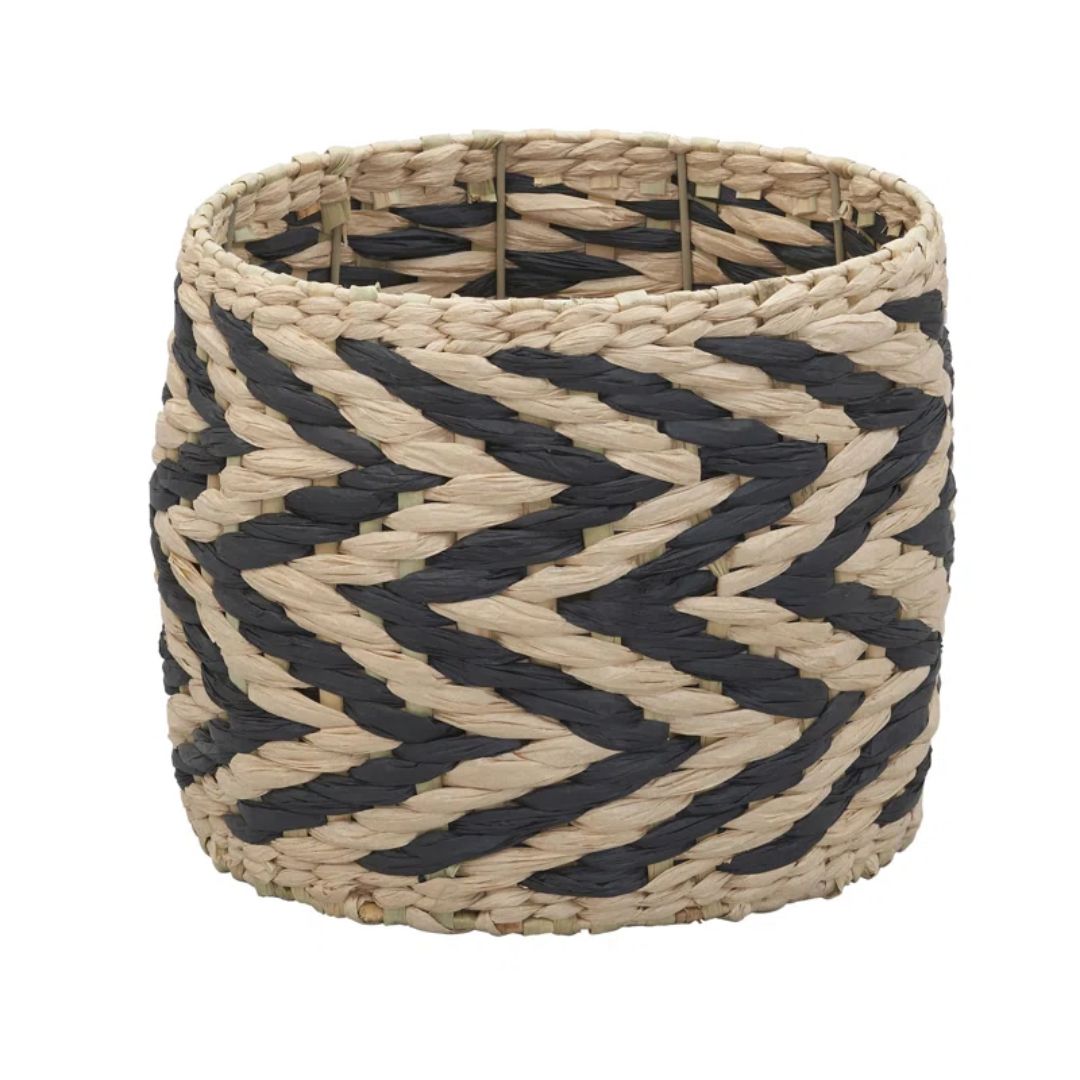
Price: $27.50
This Household Essentials Wicker Basket from Wayfair has been organically woven from natural cattail and paper rope and stylishly wrapped in an abstract design around a metal frame. It's ideal for storing away clothes, towels, throws, and so much more.
2. Use Products Wisely
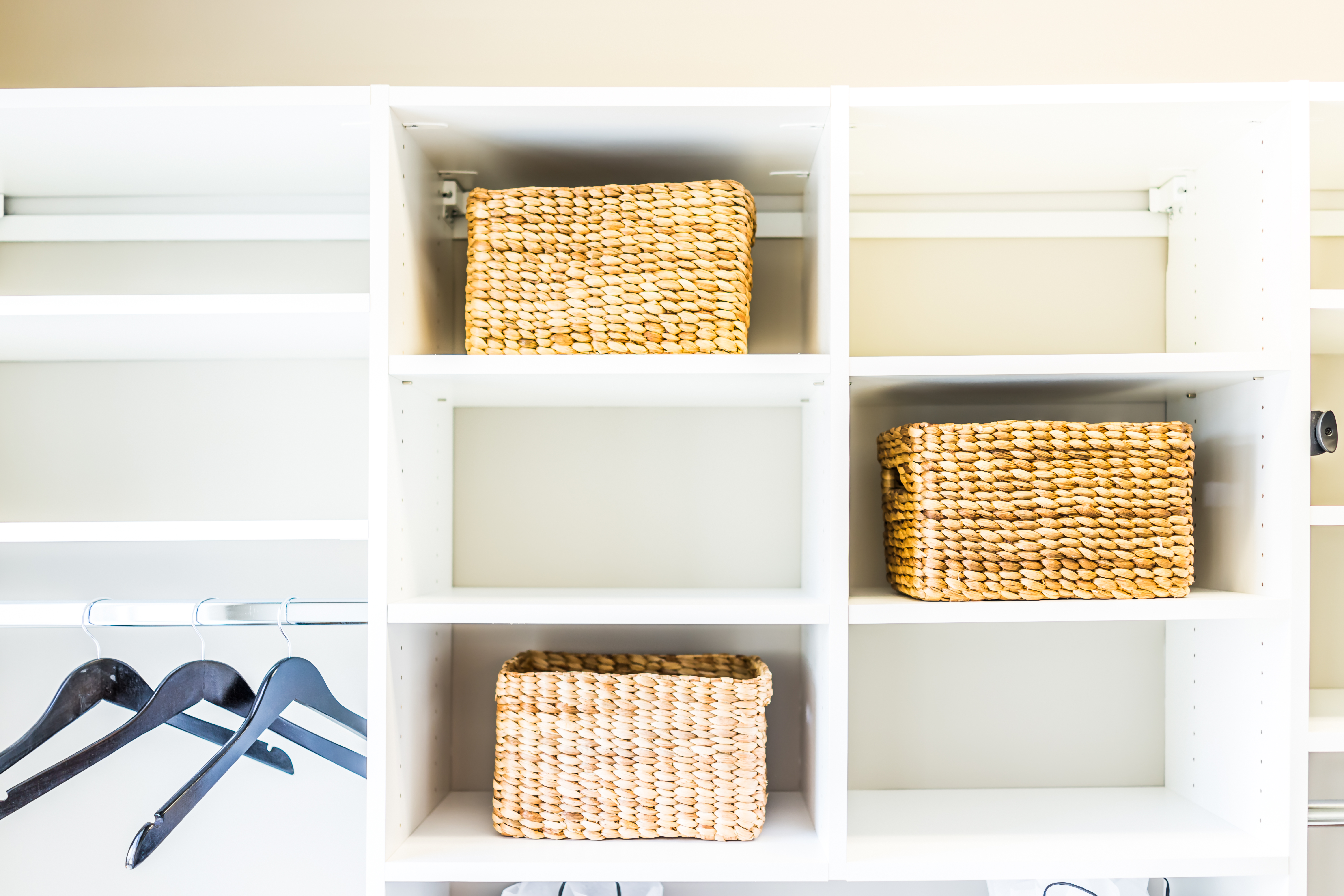
If you want to store clothes without a closet, you may want to be a little selective with the products you use within your space. Too much can often lead to more clutter and disorganization. So, what's the best way to tackle this?
The Livingetc newsletters are your inside source for what’s shaping interiors now - and what’s next. Discover trend forecasts, smart style ideas, and curated shopping inspiration that brings design to life. Subscribe today and stay ahead of the curve.
Lisa tells us: "Less is more when it comes to implementing storage products. If you use too many or unnecessary products, they can make your closet look cluttered and take up more space than you’d like."
She recommends buying organization products as one of the last steps in the process once you've organized and decluttered your clothing. This will allow you to see what you might need to keep things you order. "This saves you money, time, and energy. If you need to organize products such as bins, carefully measure the areas you need them for," explains Lisa. "In fact, measure twice! This prevents you from buying the wrong products that you’ll have to return."

Lisa Tselebidis is a professional organizer and KonMari-certified consultant, who guides high-achievers from overwhelmed and stressed out to organized and thriving. She approaches tidying holistically and emphasizes the multitude of benefits clutter-free living and simple systems can have beyond “just” the aesthetic aspects. From improved mental health, over financial benefits to better time management, Lisa views tidying your home as setting the stage to living your envisioned life.
3. Organize by Category

If you're looking to organize a room with too much stuff and want to tidy away your clothing, the most effective way to do so is by organizing your items by category. This will allow you to navigate the items you need quickly and, in turn, create a more organized space.
"For a fully functional closet, I recommend you organize your clothes by category. Don’t organize by outfits, but by simple categories," says Lisa. "If you're mixing and matching pieces (like most people), organizing by categories makes the most sense as it helps you find things quickly. Look at the types of garments you own and determine your categories and make sure they don’t overlap."
She continues, "Again, keep it as simple as possible. Common categories include coats, jackets, suits, dresses, skirts, t-shirts, pajamas, workout clothes, etc. Determine your categories and make sure every item you own belongs to one of them."
4. Hanging vs. Folding Clothes
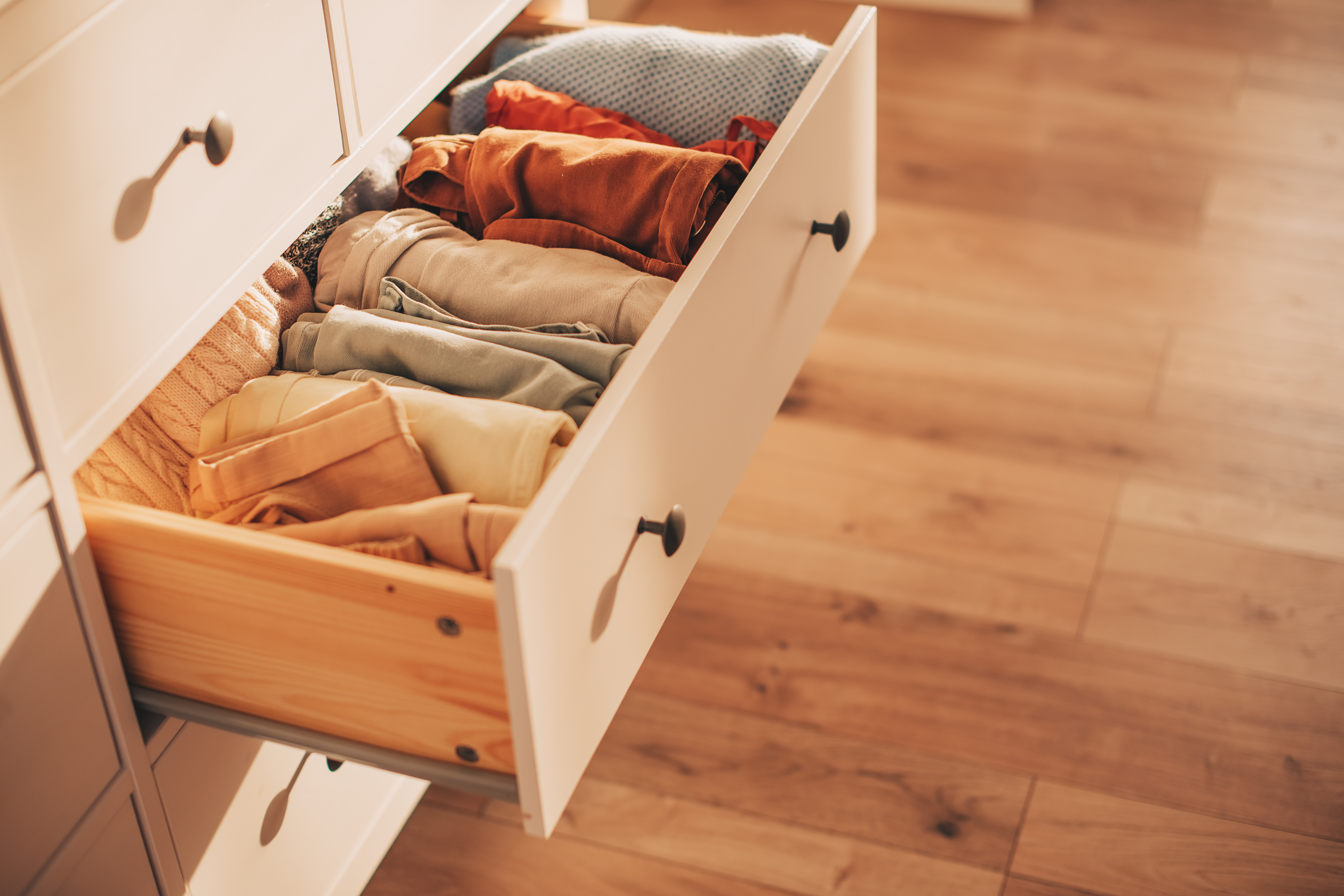
Hanging vs folding clothes, which is the best method of storing clothes? Well, Lisa says it depends on the item and the amount of space you have available. "Clothes can either be stored hanging or folded," explains Lisa. "Generally, items (or rather: categories) that are hard to fold or that would wrinkle too easily when folded should be hung."
Lisa recommends hanging up formal wear, such as coats, jackets, suits, dressers, and blouses, while all other clothing can be folded. "Of course, if you have more hanging space than folding space, you can hang up more categories," she continues. "For example, you might decide to hang up jeans and t-shirts as well because your dresser is rather small and can only really hold your pajamas and workout clothes."
5. Label for maintenance
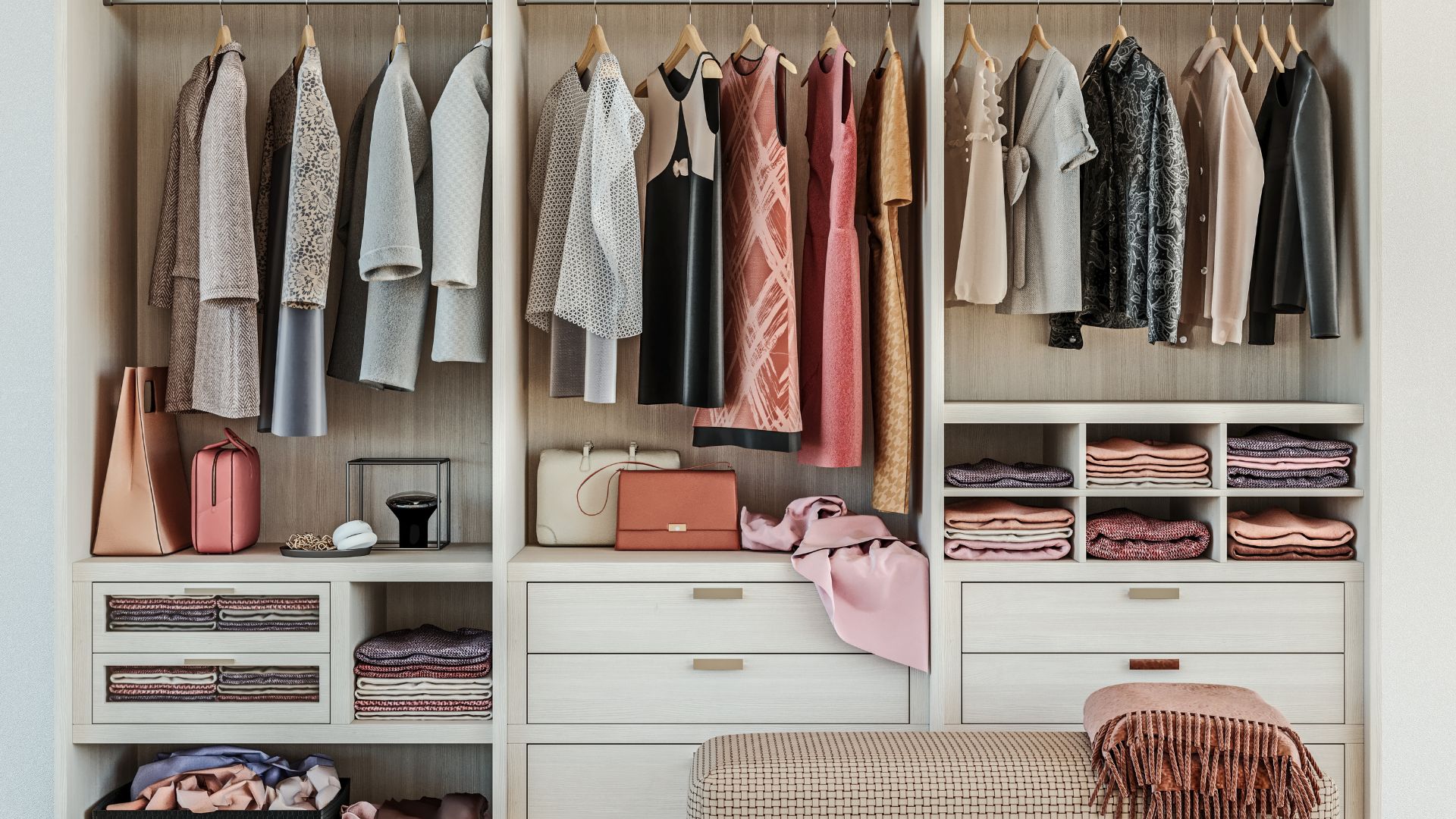
Having a closet labeling system is essential if you're looking to easily navigate your space and Lisa seems to agree.
The expert tells us: "After re-organizing your clothes, you might need to get used to where things have their new place. Your brain needs some re-training and labels can help with that. For clothes you store in drawers, it can be useful to label the top of the drawers."
Lisa says you should label each row of clothing with its category name. You can use this handy little closet-style files hook and label set from QVC. Lisa continues: "If you happen to store folded clothes in bins on shelves, you can label the bins. For hanging clothes, you can use clothing rack dividers for each category and label them accordingly."
FAQs
Why is it important to store clothes properly?
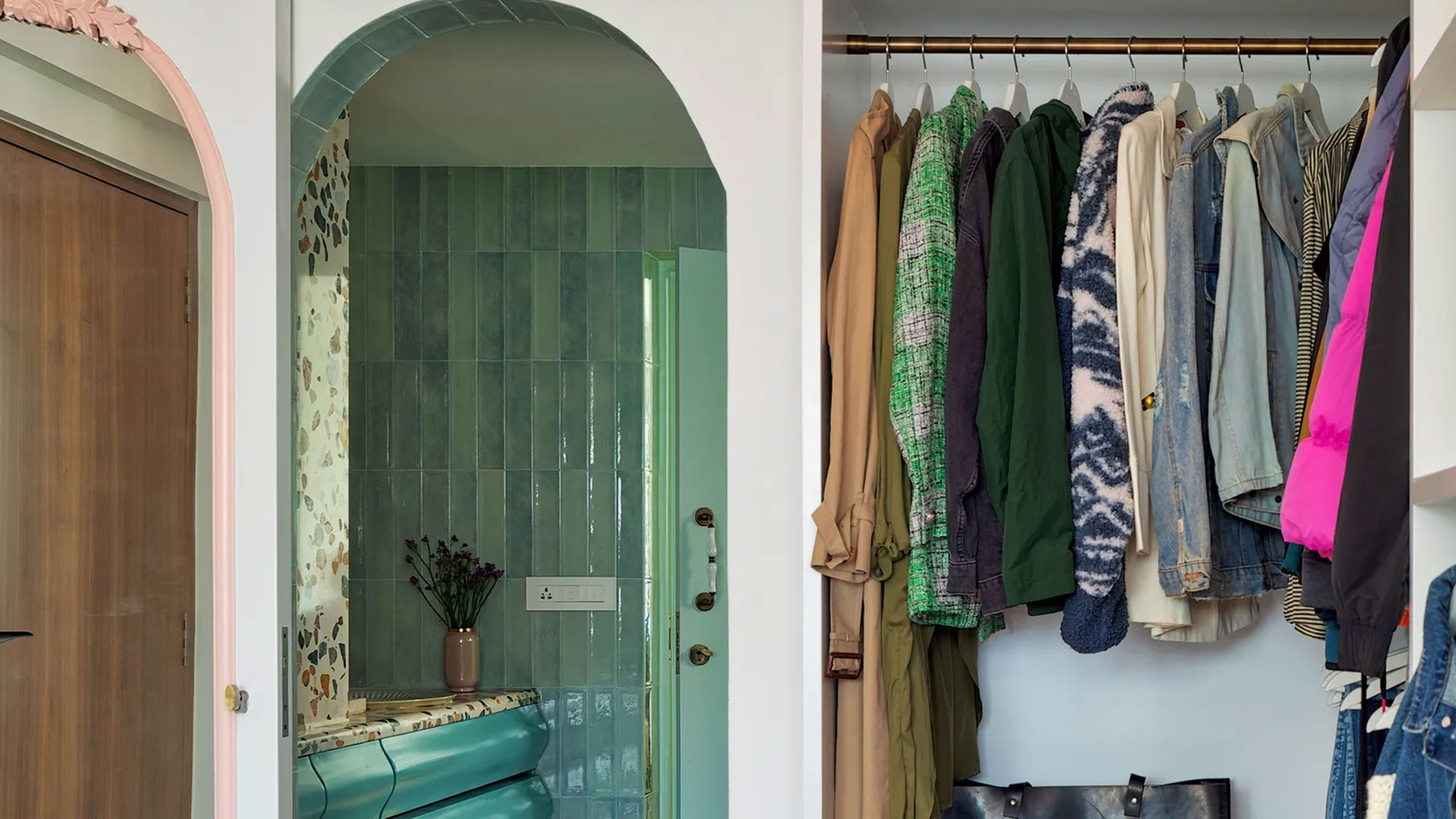
There are plenty of reasons why you should take the time to store your clothes properly and Lisa highlights the 3 most important reasons:
It saves time: "A decluttered and well-organized closet undoubtedly saves you time," says Lisa. "If every item you own has a designated place in your closet, you don’t waste any time looking for something." This will allow you to get dressed in a matter of minutes if your clothes are visible and easy to access.
It's good for your mental health: A cluttered home can often sit on our minds. After all, a clean space is a clean and peaceful mind, right? Lisa tells us: "Clutter and chaos in your closet can often represent one’s internal state. By making an effort to put your clothes in order, you can put your mind at ease. If getting dressed in the morning is easy because you know where everything is, you already started the day on a positive note."
Your space will look way better: Lisa says, "An organized closet is pleasing to the eye and can serve as a motivator to keep it up that way. Who has time to (re-)organize every so often? If you organize your closet in a functional but also aesthetically pleasing way, you’re less likely to revert back to a disorganized, cluttered state, as the optics are just too good!"
How do i protect my clothes from moths?
There are a few things you can do to protect your clothes from moths. Lisa says you should always keep your space clean, do your laundry before storing your clothes away, ensure you brush your outdoor clothing and lastly, use smart storage products that will make a difference.
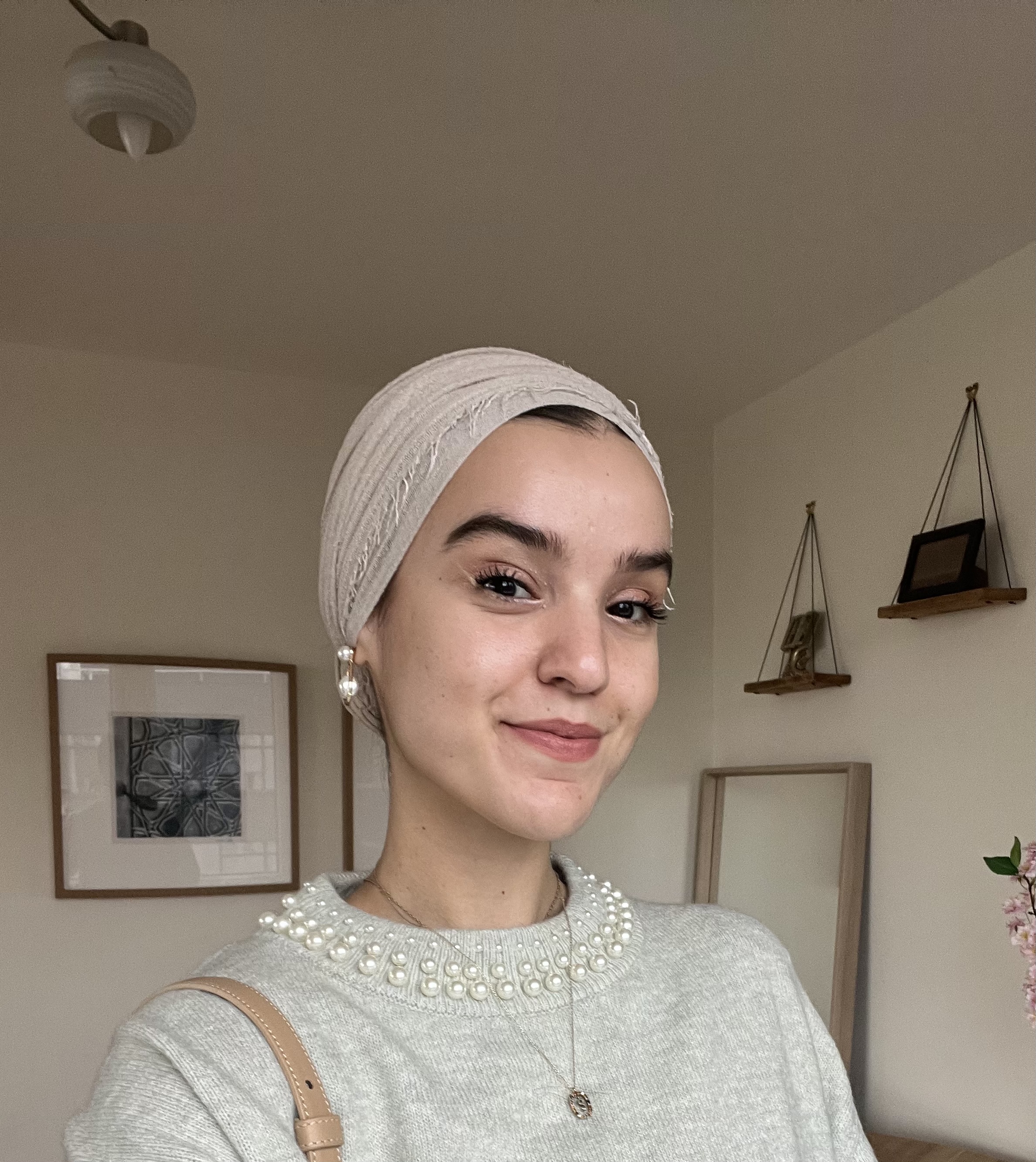
Faiza is the Renovation Editor at Livingetc. She previously worked for The Independent as a News Feature Writer, where she crafted lifestyle, entertainment, and news stories. She also worked as an Audience Editor for the newspaper for almost two years. Thriving in the busy newsroom, Faiza also spent her time crafting stories for Sky News as an SEO reporter, where she produced stories based on trending topics. Lifestyle and interior design have been areas of interest for her for some time, and as she advances in this field, she will continue to refine her skills in all aspects of design. Faiza has a background in SEO, social media, and reporting. Her passion for writing goes beyond her work as she loves all things poetry and creative writing.
